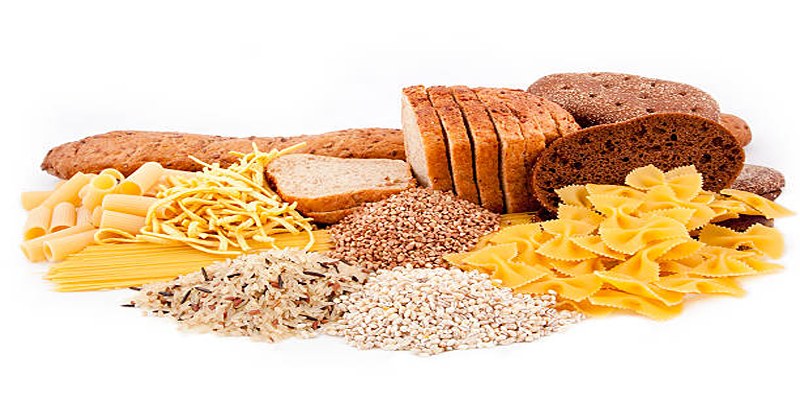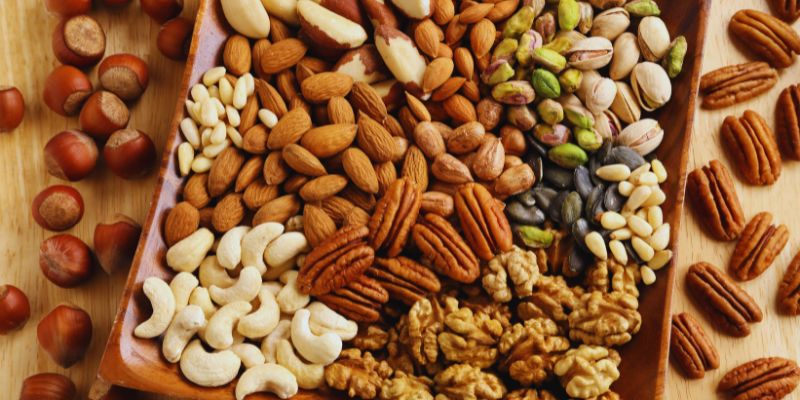Throughout recent years carbohydrates have received varied assessments from their vital role as an energy source to their misunderstood relation to weight gain. But what’s the real story about carbs? How do they affect our bodies, and what role do they play in a healthy diet? The following blog post provides a breakdown of carbohydrates along with their different categories and their effects on your body and recommended options for lifestyle balance.
What Are Carbohydrates?

The human body needs carbohydrates together with fats and proteins as essential macronutrients. Carbohydrates serve as the body's principal energy source and people commonly refer to them as "sugars," "starches," or "fibers." Carbohydrates which enter your body transform into glucose (sugar) that powers tissue cells alongside vital organs such as the brain.
The Role of Carbohydrates in the Body
Carbs play a crucial role in various bodily functions:
- Energy Production: Every gram of carbohydrate provides 4 calories of energy. Glucose derived from carbs is the body's go-to energy source.
- Brain Function: Your brain relies heavily on glucose for proper functioning and concentration.
- Muscle Recovery: After physical activity, carbs help replenish glycogen stores in muscles.
Since the body uses carbohydrates as its primary energy source and the body favors them over other macronutrients such as fats and proteins.
Not All Carbs Are Created Equal
Carbohydrates can be divided into two main categories: simple carbs and complex carbs. Your diet success depends on clearly understanding the distinctions between simple and complex carbs.
Simple Carbs
Simple carbohydrates contain no more than two sugar molecules, which prompts rapid digestion by the body. They’re found in:
- Natural sources like fruits (e.g., apples, bananas) and milk.
- Processed foods like candies, sugary cereals, and soda.
Simple carbs are quickly digested, leading to blood sugar spikes and crashes that can leave you feeling tired and hungry shortly after eating.
Complex Carbs
Complex carbs are made of longer chains of sugar molecules, which take more time to break down. Examples include:
- Whole grains, such as brown rice and quinoa.
- Vegetables, like sweet potatoes and broccoli.
- Legumes, including lentils and chickpeas.
These carbs provide a steadier energy release and keep you full longer, thanks to their fiber content. They also come packed with essential nutrients and promote gut health.
Refined vs. Unrefined Carbs
Another distinction is between refined and unrefined carbs:
- Refined Carbs (like white bread, pastries, and pasta): These have been stripped of most of their fiber and nutrients, leading to a higher glycemic index (GI). High-GI foods cause rapid blood sugar spikes.
- Unrefined Carbs (like whole grains, fruits, and vegetables): These retain their fiber and nutrients, resulting in a more gradual blood sugar response.
The Glycemic Index and Its Importance
The Glycemic Index (GI) is a scale from 0 to 100 that ranks how quickly carbohydrate-rich foods increase blood sugar levels.
- Low GI (55 or lower): Whole oats, beans, and apples.
- Medium GI (56–69): Brown rice, sweet corn, and rye bread.
- High GI (70 or higher): White bread, instant potatoes, and sugary snacks.
Consuming more low-GI foods can help stabilize blood sugar levels, improve energy, and reduce the risk of developing conditions like Type 2 diabetes.
Health Benefits of Carbohydrates
Despite their sometimes bad reputation, carbs are incredibly beneficial for your health when consumed mindfully. Here's why carbs deserve a spot on your plate:
- Boosts Brain Power: Glucose from carbs is your brain's main fuel. Adequate carbohydrate intake can enhance memory, focus, and overall cognitive function.
- Supports Athletic Performance: Before a workout, consuming carbs helps ensure your body has sufficient glycogen stores. Post-exercise carbs play a critical role in muscle recovery.
- Fuels a Healthy Gut: Fibrous carbs act as prebiotics, feeding the good bacteria in your gut. A healthy gut microbiome supports digestion, immunity, and even mood regulation.
- Provides Essential Nutrients: Many carbohydrate-rich foods, like fruits and whole grains, are rich in vitamins, minerals, and antioxidants that promote overall well-being.
How to Choose the Right Carbs
Making smarter carb choices isn’t about avoiding them altogether; it’s about picking the right ones. Here’s how to build a carb-conscious diet:
1. Focus on Whole Foods
Whenever possible, choose whole, unprocessed foods like quinoa, oats, and starchy vegetables. These options pack in fiber, vitamins, and minerals.
2. Pair Carbs with Protein or Healthy Fats
Combining carbs with protein or fats slows digestion and helps manage blood sugar levels. For example, pair an apple with almond butter or whole-grain crackers with hummus.
3. Limit Refined Sugars
Keep candies, sugary drinks, and baked goods to a minimum. Instead, satisfy your sweet tooth with fresh fruit or dark chocolate.
4. Pay Attention to Portion Sizes
Even healthy carbs can lead to weight gain if consumed in large quantities. Use portion control to balance your meals.
5. Read Labels Smartly
Check nutritional labels for hidden sugars in packaged goods. Look for phrases like “fructose,” “corn syrup,” or “maltodextrin.”
Common Myths About Carbs (and the Facts)
Myth 1: Carbs Make You Gain Weight
Fact: Weight gain doesn’t happen because of carbs alone. Overeating any macronutrient beyond your daily caloric needs can lead to weight gain. Choosing the right carbs and eating them in moderation is key.
Myth 2: Cutting Carbs Completely Is Healthy
Fact: Eliminating carbs entirely can lead to fatigue, poor focus, and nutrient deficiencies. A balanced approach is healthier and more sustainable.
Myth 3: Carbs Are All the Same
Fact: Complex carbs like whole grains and simple carbs like soda affect the body differently. Not all carbs are created equal!
Should You Try a Low-Carb Diet?

The popularity of low-carb diets, such as keto and paleo, has created buzz around minimizing carb intake. While these diets can work for some, they may not be suitable for everyone. Factors like your activity level, health goals, and personal preferences should guide your decision.
If you’re active or an athlete, carbs are crucial to optimal performance. Meanwhile, if you’re managing a specific health condition like insulin resistance, a lower-carb approach might be helpful. Always consult a healthcare provider or dietitian before making drastic dietary changes.
Conclusion
Carbohydrates can be your body’s best friend when chosen wisely. Instead of fearing them, the key is to focus on quality, balance, and mindfulness. Use this guide as a starting point to better understand how carbs fuel your energy, creativity, and overall health. Want to take your carb knowledge even further? Start experimenting with simple recipes featuring whole foods like quinoa bowls or sweet potato stir-fries.












